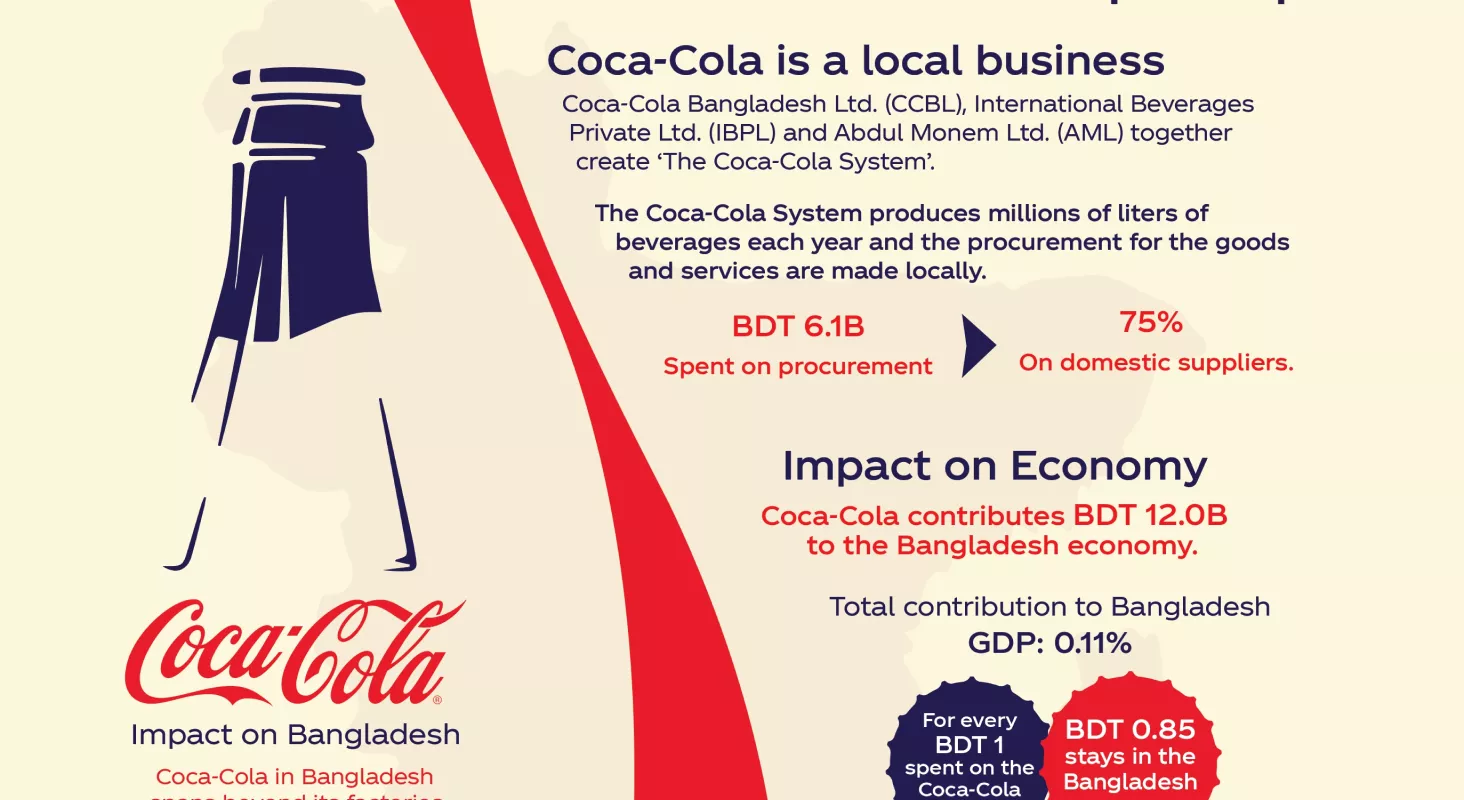
Coca-Cola'nın Bangladeş'teki katma değer etkisine 12,2 milyon TK’lık katkısı
27.03.2022Coca-Cola’s 1,220C contribution to value added impact in Bangladesh
Coca-Cola Bangladesh contributed Tk1,220 crore in value added impact in 2019, as per their recent Socio-Economic Impact report.
Value added impact is the sum of all incomes to households, businesses and the government. In 2019, Coca-Cola’s contribution to value added impact equaled 0.11% of Bangladesh GDP, said a press release.
The report found that for every Tk1 a consumer spent on the system’s beverages, Tk0.85 is value to the economy.
In 2019, the system procured Tk610 crore worth of goods and services, of which 75% was sourced locally. All Coca-Cola’s beverage brands are locally manufactured and brought to market by a local workforce for Bangladeshi consumers. As a spill-over effect, the sale of the system’s beverages enabled thousands of outlet owners to generate revenues across the country.
By investing in both bottling and distribution operations with two plants, the Coca-Cola system is creating direct and indirect impact in the Bangladesh economy.
The system impact is divided into the following categories: upstream indirect impact driven by local procurement, direct impact by the company, and indirect downstream impact driven by sales and distribution.
During its journey from the production line to the consumer, a bottle of Coca-Cola creates added value for multiple sectors such as trade, agriculture, transportation, manufacturing, retail, advertising, media, and others.
The Coca-Cola system generates nearly 22,100 jobs, which consists of 833 direct jobs and 21,300 indirect jobs, representing 0.03% of total employment in Bangladesh. For each direct job there are 26 jobs supported in other business sectors across the Bangladesh economy. The trade sector is the biggest beneficiary of jobs from the system’s activities, followed by transport and agriculture.
The company contributes to the economic development of local communities by employing local people, paying taxes to governments, purchasing goods, services and capital equipment from local suppliers, and supporting social development programs.
Coca-Cola commissioned Steward Redqueen for this economic assessment to gain insights into the magnitude of its direct and indirect impact on incomes and employment in 2019 in Bangladesh. The assessment is based on the ‘input-output’ methodology developed by the Nobel Prize winning economist Wassily Leontief, and is commonly used by economists worldwide for this type of analysis.



